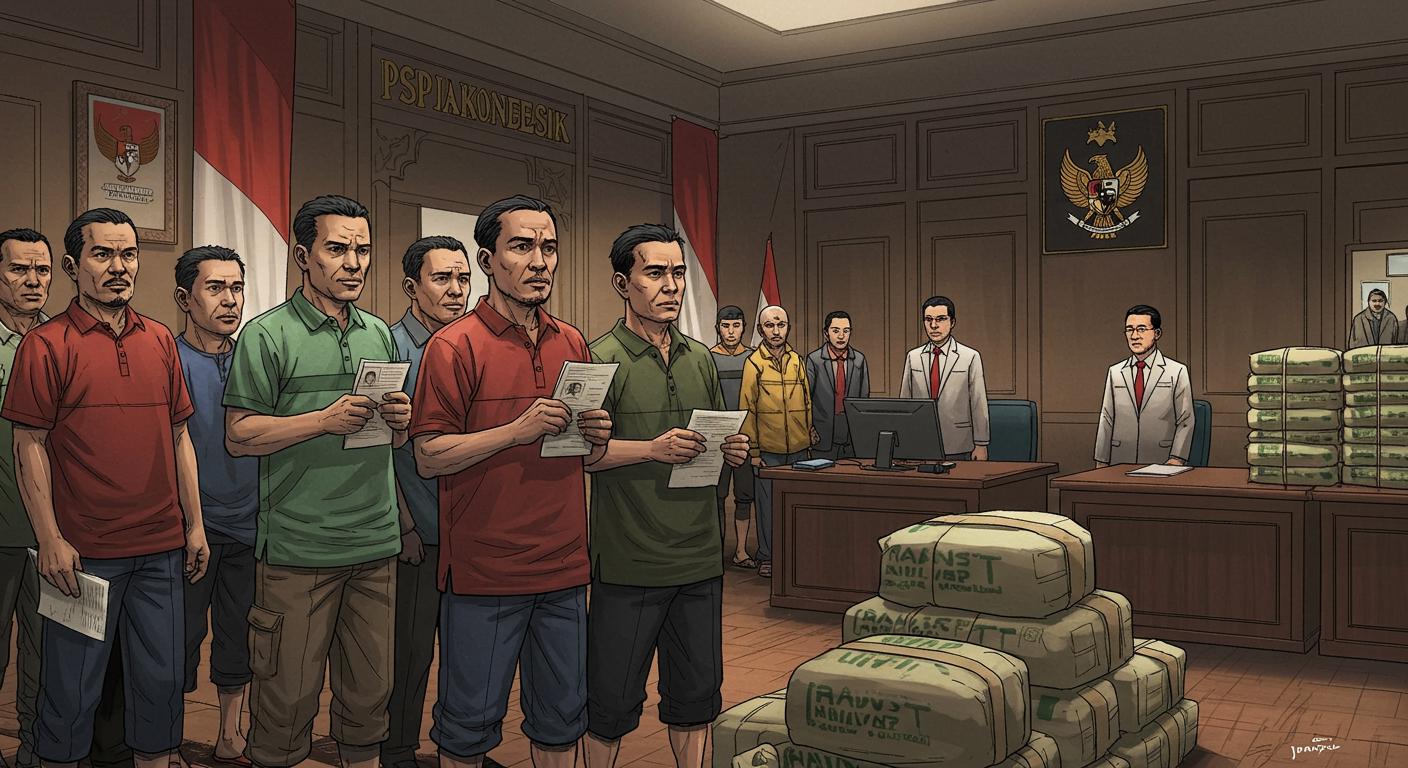Every so often, a story surfaces that makes even seasoned aficionados of the world’s oddities pause mid-coffee. According to the New Straits Times, Indonesia is currently weighing a proposal that would, quite literally, ask its poorest men to swap their future fertility for access to government benefits. No, this isn’t a speculative dystopian novel—it’s a live policy debate, unfolding right now.
From Scholarship to Scalpel: The Vasectomy Proposal, Explained
Here’s the setup, summarized and attributed to New Straits Times: West Java Governor Dedi Mulyadi has proposed that government assistance—scholarships, housing subsidies, and other social safety net measures—should be conditional on men of reproductive age undergoing a vasectomy. The rationale, as described in the outlet, is a familiar one: government aid only stretches so far, and large families among the economically disadvantaged (comprised, apparently, of those with remarkable persistence and perhaps unreliable contraception routines) result in lopsided distribution.
To incentivize compliance, Dedi suggested an upfront payment of 500,000 rupiah (about RM130) to men agreeing to the procedure. He emphasized, according to New Straits Times, that “men should also bear responsibility for reproduction,” arguing that men’s participation is necessary because “women sometimes forgot to take their contraceptive pills.”
On the other side of the cabinet table, Indonesia’s Social Affairs Minister Saifullah Yusuf appeared to appreciate the underlying logic but pressed pause, expressing, as quoted in the article, that “integrating family planning into government assistance programmes is a good idea, but we need more time to examine the proposal thoroughly.” In short: not an outright rejection, but certainly not a green light either.
Human Rights and Halal Hurdles
Policies that tiptoe along the edge of bodily autonomy generally invite pushback, and this one is no exception. Indonesia’s National Commission on Human Rights, the report notes, has sharply criticized the proposal, labeling it discriminatory and warning that enforced vasectomy could breach fundamental rights. Deputy head Abdul Haris was quoted in New Straits Times: “If enforced, it could constitute a breach of human rights. Vasectomy should be a voluntary decision.” Given the stakes—scholarships and basic housing—a truly voluntary choice seems a little elusive.
The Indonesian Ulema Council (MUI) has also found fault, declaring the plan haram, or religiously forbidden, if used for permanent sterilization. Asrorun Niam Sholeh, head of the MUI Fatwa Committee, highlighted to the outlet that the only acceptable cases are those involving compelling medical reasons, and only if fertility can be fully restored. Success rates for vasectomy reversals, as New Straits Times adds, can range from 70% to 90% with success influenced by elapsed time and surgical skill. “Since current vasectomy reversal procedures cannot guarantee full restoration of reproductive function, the procedure remains haram,” Asrorun observed. The complexities of religious doctrine seem matched only by those of reproductive medicine.
Equitable Aid or Eugenics Playbook?
Poring over the historical record, it’s difficult not to sense echoes of earlier, more sinister moments: state-led sterilization tied to welfare policy isn’t new and rarely lacks controversy. While Dedi’s justification leans on efficient government and equitable distribution—reports the New Straits Times—policymaking that trades human rights for optimization tends to leave bruises, both literal and metaphorical. Can a “no snip, no scholarship” approach really pass for sound governance, or does it ring alarm bells in the vaults of collective memory?
And, in practical terms, does this solve the problem it purports to address? Offering a modest, one-time payment and holding aid as a carrot might check a bureaucratic box, but as critics in the article point out, top-down, surgically irreversible edicts handed to vulnerable populations have a notable history of unintended consequences. Has enough attention been given to the implications for families, or the long-term psychological and social fallout?
Snipping at the Edges of Complexity
For all its eyebrow-raising oddity, this proposal does break open bigger, more nuanced issues: the strain on public resources, the ethics of state involvement in private family matters, and the limits of government intervention for public good. Yusuf’s reminder—“There is a formal process for distributing government aid, and we cannot make changes on a whim”—hints at the necessity for deep caution.
Is this simply an act of creative desperation by policymakers, or will it enter the annals of social engineering that future generations look back on and ask, “They seriously considered what?” Sometimes, the boundary between innovative policy and the outright surreal is nothing more than a razor’s edge. For those tracking the global parade of bureaucratic oddities, this one is certainly a candidate for the scrapbook.
So—do we chalk this up as a case of a government thinking outside the box, or is it destined to be an example of well-meaning policy gone sideways?







